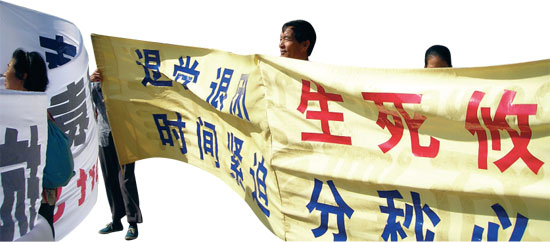
FYI.
This story is over 5 years old.
Falun Gong And Me
Chinatown: New York's Seward Park is a riot of incredibly fit senior citizens by 6 AM every day. Near the north end of the park, a tai chi group of about 40 members practices to a stereo blasting pentatonic music.
